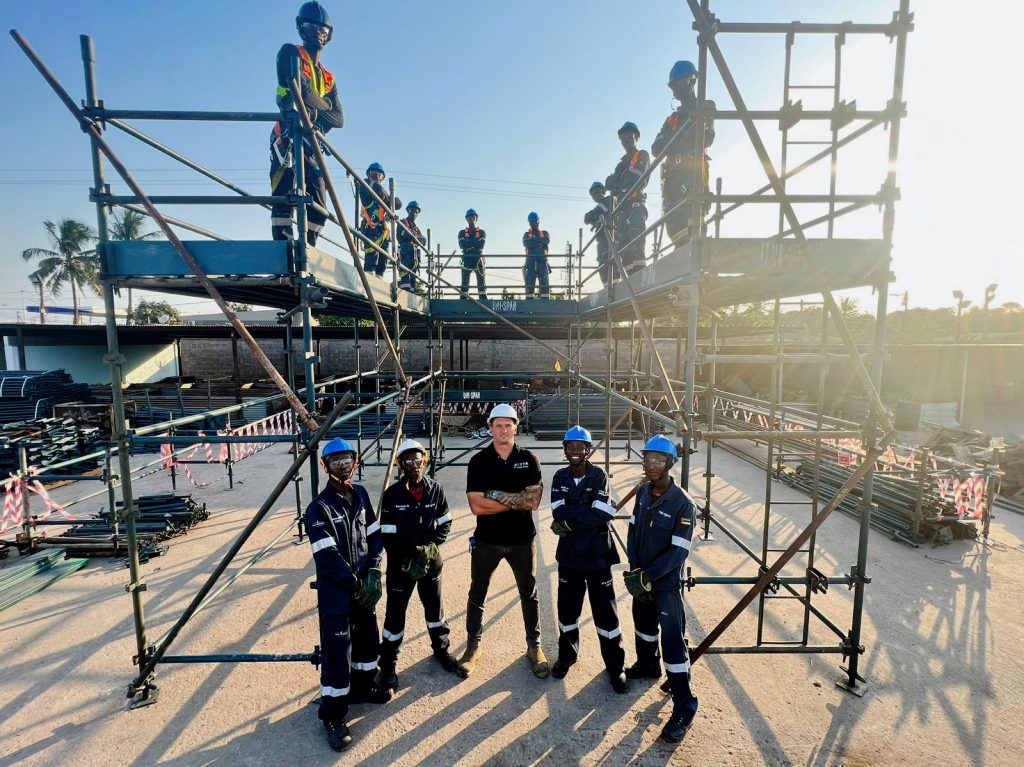Height Safety Training for Construction Sites: Are You Legally Compliant? [Free Checklist]
In South Africa’s construction industry, working at height is one of the most common causes of injury and death on site. And here’s the hard truth: it’s not enough to hand out a few harnesses and hope for the best.
If you’re a contractor, site manager, or safety officer, it’s your responsibility to make sure every scaffold, ladder, and fall arrest system meets legal requirements. And if it doesn’t? You’re not just risking your project — you’re risking lives, lawsuits, and licence loss.
So, let’s ask the real question:
Is your site legally compliant with height safety regulations?
🧾 What the Law Says (And Why It Matters)
The Occupational Health and Safety Act and the Construction Regulations (2014) aren’t suggestions — they’re the law.
As a contractor or site supervisor, you are legally required to ensure that:
- A Fall Protection Plan is prepared and signed by a competent person
- Only qualified and trained workers perform tasks at height
- All scaffolding is erected and inspected by certified individuals
- Workers have valid medical fitness certificates
- Equipment such as harnesses, lifelines, and ladders are routinely inspected
- A complete Health & Safety File is maintained on-site
- A tested rescue plan is in place and understood by the team
These requirements are non-negotiable.
Fail to comply, and you’re exposed to:
- Site shutdowns by the Department of Labour
- Heavy fines or litigation
- Criminal charges in the event of serious injury or death
- The personal guilt of knowing you could have prevented a tragedy
🔍 The Most Common Gaps We See on Site
Think your site is covered? Here’s where most construction companies fall short:
1. Unqualified Workers at Height
Just because someone has “done it before” doesn’t mean they’re certified. If they’re not trained, they’re not allowed to be there.
2. Missing Paperwork
If you can’t show your scaffold inspection logs, rescue plans, or risk assessments on request — you are out of step with the law.
3. No Rescue Equipment or Plan
Even if you’ve invested in safety gear, a missing or untested rescue plan is a major oversight. You must know what happens after a fall.

📚 Why Height Safety Training Isn’t Optional
You wouldn’t let someone operate heavy machinery without a licence — so why allow work at height without formal certification?
At The Training Academy, we offer a full range of construction safety courses designed to meet South African legal requirements. These include:
- Working at Height Certification
- Fall Arrest and Rescue Procedures
- Scaffold Erection and Inspection
- Legal Compliance for Supervisors and Safety Officers
- Risk Assessment and Safety File Workshops
Each course is delivered by experienced instructors, on-site or off-site, with real-world insight and SAQA-aligned material.
✅ Download Your Free Height Safety Compliance Checklist
We’ve created a free downloadable checklist to help you audit your site quickly and accurately:
📄 “Height Safety Compliance Checklist for Construction Sites”
What you’ll get:
- Tick-box legal requirements
- Direct legal extracts from South African regulations
- Clear steps to fix common gaps
- Space to record compliance status for each item
It takes less than 10 minutes to complete and can save you thousands in downtime or fines.
🚧 What To Do Next
If you read this far, you already care about getting it right.
So here’s your next step:
- Download the checklist
- Walk your site and fill it out
- Contact us for accredited safety training and guidance
We’ll help you close the compliance gaps, train your staff, and give you peace of mind that your site meets every legal requirement.
📞 Book Certified Training with The Training Academy

- 📍 We operate across South Africa: from East London and Cape Town to your construction site
- 📧 office@thetrainingacademy.co.za
- 🌐 www.thetrainingacademy.co.za
Don’t wait for a Department of Labour inspection to find out your site isn’t compliant.
Download the checklist. Book your training. Get it done.


